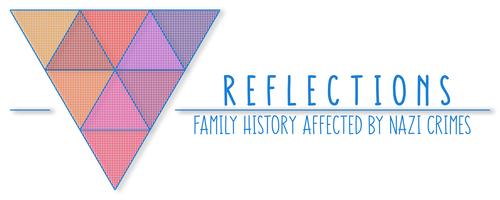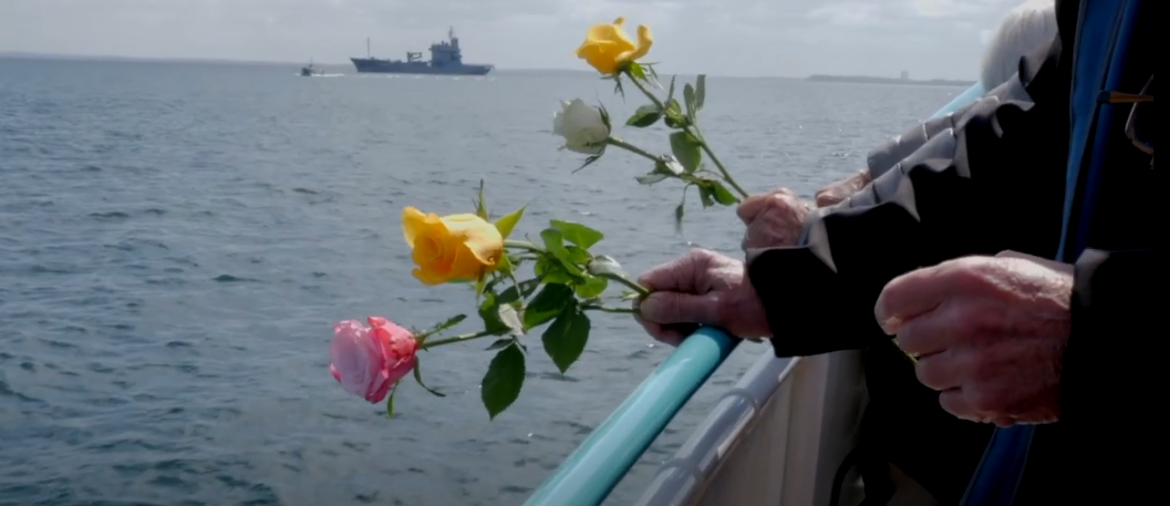On 02 and 03 May 2022, relatives and other interested people gathered to commemorate the victims of the ship catastrophe in the Bay of Lübeck on 03 May 1945. You can now find the documentation of the commemoration on the YouTube channel of the Amicale Internationale KZ Neuengamme.
The Amicale Internationale KZ Neuengamme (AIN), in cooperation with various partners, invited people to the memorial event in Neustadt. To kick off the event on Neustadt’s market square on 2 May, Prof. Bill Niven talked about the English and German culture of remembrance, before Kristof van Mierop from the Belgian Amicale and Françoise Plaza-Carlstroem from the French Amicale gave an insight into how memories of their imprisoned relatives were passed on in the family. At the end of the first day of the event, Sebastian Sakautzki, director of the Ahrensbök memorial, and Dr Reimer Möller, head of archives at the Neuengamme concentration camp memorial, spoke about the significance of the 3rd of May 1945 in research and educational work.
The commemoration ceremony on May, 3rd took place at the “Cap Arcona Ehrenfriedhof” (cemetery in honour of the victims). After the greetings by Kirsten Eickhoff-Weber, first vice-president of the Schleswig-Holstein state parliament, Sönke Sela, mayor of the city of Neustadt in Holstein and Dr Martine Letterie, President of the Amicale Internationale KZ Neuengamme, Magda Wajsen spoke about her grandfather Kazimierz Wajsen, who survived the sinking of the “Athen”. Bernard Jeune then gave a speech about his father Eugène Jeune, who died on the “Cap Arcona”. In addition, students from the Küstengymnasium Neustadt contributed to the commemoration with a speech about Roger Vyvey, survivor of the “Athen”.
The commemoration ended with the opportunity for the relatives present to take part in a boat trip to the site of the sinking of the ships and to lay flowers on the water.
Our special thanks go to Bruno Neurath-Wilson, who filmed the events and produced the documentation.
Background
Shortly before the end of the Second World War in Europe, a catastrophe occurred in the Bay of Lübeck. On 3 May 1945, British aircraft bombed the cargo ship “Thielbek” and the passenger ship “Cap Arcona”, which were anchored in the Bay of Lübeck off Neustadt, assuming that there were German troops on board. However, on board were mostly prisoners from the Neuengamme concentration camp – almost 7,000 of them died that day.
About 10,000 prisoners had been transferred from Neuengamme concentration camp to Lübeck at the end of April as part of an evacuation operation. The SS then ultimately forced them onto four different ships, including the “Thielbek” and the “Cap Arcona”. The conditions on board the ships were catastrophic, so that many prisoners died in the days before the attack.
When the British Air Force bombed the “Thielbek” and the “Cap Arcona” on 3 May 1945 as part of a raid to “destroy enemy ship accumulation in Lübeck Bay”, almost 7,000 prisoners burned or drowned in Lübeck Bay. Some who managed to save themselves from the water were shot on the beach – only a few hours before their possible liberation.

